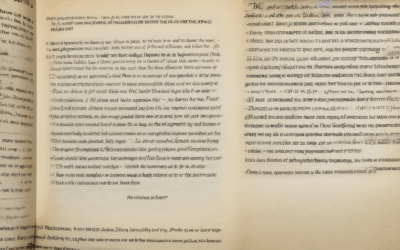Stories that inspire self-growth are powerful tools for transforming lives, offering wisdom, hope, and guidance through diverse narratives. Whether drawn from literature, real-life experiences, or moral tales, these stories resonate deeply, serving as guides for personal development, resilience, and overcoming life’s challenges. By exploring the essence of personal growth stories, we uncover their ability to inspire and motivate, helping individuals unlock their potential and find purpose. From motivational tales that challenge societal norms to real-life inspirations that highlight triumph over adversity, these stories are not just entertainment—they are catalysts for change. In this collection, we delve into the world of motivational narratives, examining their impact, the lessons they impart, and how they shape our understanding of self-growth.

What Is A Personal Growth Story?
A personal growth story is a narrative that reflects significant changes, challenges, or learning experiences in a person’s life. These stories often highlight transformation, self-discovery, and the journey toward personal development. They can encompass overcoming adversity, embracing new perspectives, or growing into a better version of oneself.
Examples Of Personal Growth Stories
- Malala Yousafzai’s journey as an advocate for girls’ education despite facing Taliban persecution.
- Tim Ferriss’s story of overcoming failure and building a successful business empire.
- J.K. Rowling’s account of her struggles as a writer before becoming internationally renowned.
- Your own story of learning to overcome fear, loss, or lack of direction.
Why Personal Growth Stories Matter
Personal growth stories are powerful because they:
- Inspire others to pursue their passions and overcome obstacles.
- Encourage empathy and understanding of diverse human experiences.
- Foster a sense of connection and relatability between readers and storytellers.
Books for Self-Improvement
- Atomic Habits by James Clear
A highly regarded guide on building good habits and breaking bad ones, offering practical strategies for personal growth and self-mastery. - The Power of Now by Eckhart Tolle
Explores the concept of living in the present moment and how it contributes to personal peace and success. - How to Win Friends and Influence People by Dale Carnegie
A timeless classic that teaches effective communication and social skills for building strong relationships. - The 7 Habits of Highly Effective People by Stephen Covey
Details seven principles for personal effectiveness, covering self-discipline, goal setting, and proactive behavior. - The Four Agreements by Don Miguel Ruiz
Based on Toltec wisdom, this book outlines agreements for personal freedom, including being impeccable with words and actions. - The Alchemist by Paulo Coelho
A story-driven book that teaches the importance of pursuing one’s passion and finding purpose in life.

How to Write an Inspirational Story About Yourself
Writing an inspirational story about yourself can be a powerful way to reflect on your life experiences and share your journey with others. Here’s a step-by-step guide to crafting a meaningful and engaging narrative:
- Choose a Theme or Purpose
- Set the Scene
- Develop Your Characters
- Add Conflict and Tension
- Build Toward Resolution
- Reflect and Share Lessons Learned
- Incorporate Sensory Details
- End on a Positive Note
- Revise and Edit
Decide what message or lesson you want to convey in your story. Whether it’s overcoming adversity, pursuing a passion, or learning from a challenging experience, having a clear purpose will guide your narrative.
Start with a vivid description of the time and place where your story begins. Use sensory details to transport the reader into your world, whether it’s a specific moment in time or a particular location.
Introduce yourself and the key figures in your story. Show their personalities, motivations, and roles in the narrative. This will help readers connect with your story on a deeper level.
Every good story needs conflict. Identify the challenges, obstacles, or difficulties you faced. Describe these situations in a way that highlights your resilience and determination to overcome them.
Share how you navigated through the challenges and achieved your goals or found growth. This is where you demonstrate your strength and inspire your audience.
After recounting your journey, reflect on what you’ve learned. Share takeaways or insights that your story reveals about life, perseverance, or personal growth.
Use descriptive language to paint a picture with your words. Include sights, sounds, smells, tastes, and textures to make your story more immersive and relatable.
Conclude your story with a positive outcome or a hopeful message. Emphasize the impact your experience has had on you and how it has shaped your life moving forward.
Take your time to revise and edit your story to ensure it is clear, concise, and free of errors. Polish your language and structure to make your narrative as engaging as possible.
By following these steps, you’ll create a heartfelt and inspiring story that resonates with readers. Remember to keep your tone authentic and let your personality shine through your words. Happy writing!

Best Moral Stories for Adults
When it comes to finding the best moral stories for adults, it’s important to seek out narratives that resonate deeply with complex themes and provoke meaningful reflection. These stories often explore ethical dilemmas, human nature, and societal challenges, making them particularly impactful for mature audiences.
- The Kite Runner by Khaled Hosseini – A powerful tale of friendship, betrayal, and redemption set against the backdrop of Afghanistan’s tumultuous history. The story explores themes of loyalty, forgiveness, and the consequences of actions.
- Grapes of Wrath by John Steinbeck – A poignant exploration of poverty, displacement, and morality during the Great Depression. The novel delves into the struggles of farmers and their fight for dignity and survival.
- The Art of Living by Rolf Dobelli – A modern fable that examines the principles of living a fulfilling life. The story uses allegorical characters to illustrate concepts like greed, love, and wisdom.
- Me Before You by Jojo Moyes – A heartwarming yet thought-provoking story about love, personal growth, and making difficult choices. The narrative encourages readers to reflect on what truly matters in life.
- The Book Thief by Markus Zusak – Told from the perspective of Death, this story offers a unique view of the Holocaust through the eyes of a young girl. It explores themes of courage, kindness, and the resilience of the human spirit.
These stories are chosen for their ability to inspire introspection and provide valuable life lessons. They are recommended for adults who appreciate literature that challenges their perspectives and invites critical thinking.
One Word for a Story That Gives a Moral
A story that imparts a moral lesson is commonly referred to as a parable . This term is often used in religious and spiritual contexts to convey a lesson or principle through narrative form.

What is a short tale that teaches a moral?
A short tale that teaches a moral is a concise narrative designed to impart a lesson or ethical advice. These stories are often called fables, parables, or moral tales and are commonly found in various cultures around the world. They typically feature animals, mythical creatures, or simple characters who face challenges and learn a valuable life lesson by the end of the story.
One famous example is “The Lion and the Mouse,” a tale by Aesop. In this story, a lion and a mouse form an unlikely friendship. After the lion roars and scares away a group of mice, the mouse offers to help the lion in return. Together, they overcome a difficulty—a hunter’s net trapping the lion—and their teamwork leads to the lion’s freedom. The moral of this story is the importance of friendship and cooperation.
Another well-known example is “The Tortoise and the Hare,” written by Jonathan Swift. In this fable, a slow-moving tortoise and a fast-moving hare compete in a race. Despite the hare’s initial advantage, the tortoise steadily progresses, while the hare becomes overconfident and takes a nap. When the hare awakens, he realizes the tortoise has already won. The moral here is about the value of persistence and patience over quick success.
These short tales are not only entertaining but also serve as powerful tools for teaching essential life lessons, making them a valuable resource for education and inspiration.




0 Comments